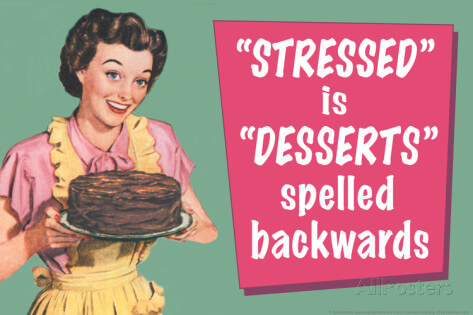The Men’s Issue No One Talks About Today’s society with its tedious gender norms, attaches a stereotypical image to emotional eating. It associates emotional eating with a depressed woman sitting in front of a television with her elbow deep in a tub of ice cream. What doesn’t come to mind is a male binging in the dark, on his own, with four or five large pizzas by his side. You don’t have to be sad to be an emotional eater, nor do you have to be a woman. In reality, emotional eating does not discriminate and anyone can suffer irrespective of age, race, socio-economic background and indeed gender. Emotional eating is reaching for food to quell feelings, rather than hunger. It is when you use food to escape an emotion or as a means to press the pause button on a life you're tired of. Most emotional eaters feel powerless over their food cravings and often feel their sense of self diminish with each bite that they take. Although eating problems are being more widely discussed than ever before, media coverage and portrayal of emotional eating is often entrenched in the stereotype of it being a uniquely or predominantly a female issue. Worse, such perception does not only exist with the general public but also among medical professors, who fail to provide gender-appropriate information and resources for men who seek help. Being A Man And Struggling With Emotional Eating Is Not Uncommon And It Is Nothing To Be Ashamed About. The public’s understanding of what constitutes emotional eating is so deeply-rooted in the female experience that men are being forgotten. Type in “emotional eating” into Google images. How many pictures with males can you see? Male emotional eating is little or not discussed thus their suffering is often in silence. The thought of emotional eating as strictly a female affliction, prevents men struggling with this problem from seeking help or even recognising that they have a problem. Our silly, collective gender logic tells us that men have agency and women do not. Our society thus views the male devouring four or five large pizzas as a behavioral choice rather than a health issue. There’s nothing wrong with a college guy eating a whole pizza by himself, but with women they would be shocked. In the case of males, overeating and binging is seen as amusing and funny. The culturally-ingrained feelings of masculinity are another reason why a lot of men don’t admit to falling victim to emotional eating. Help Men Step Out Of The Shadows It is important for us to challenge these dangerous misconceptions and break the stigma attached to male emotional eating. Raising awareness and de-stigmatizing emotional eating will help males come forward and seek help when they feel they need it. Encouraging a culture which allows men to show their vulnerability is a key factor to open up this dialogue. Say Goodbye To Emotional Eating with these 8 Tips Whether you are a male or female, here is a list of powerful tips to help you control your cravings and put a stop to emotional eating. Following these steps take practise and a little bravery, but will help to get your emotional eating under control. 1. Start a food diary Keeping a food diary can help you recognise your emotional eating triggers. Write down the time of the day you feel hungry and how you feel emotionally. This process will help you differentiate between when you’re feeling physical or emotional hunger. Be consistent. Do it daily and you will begin to recognise patterns in your eating. For example, you may notice that every time you come home from work, you eat a whole jar of peanut butter. This could point that your emotional eating is triggered by stress in your workplace. Once you know your triggers, you can develop a plan to address it. Change your routine. Before going home from work, go for a 15 minute walk instead. This will help you clear your mind and improve your mood. In turn, you’ll be less like to over-eat. 2. Distract yourself Give your brain something else to think about other than food. Invite a friend over, take the dog for a walk, listen to a podcast. Keep your mind occupied. Studies show that engaging your mind in a visual spatial task is more effective in blocking cravings. Such tasks can include completing a puzzle or drawing a picture. I recommend getting a colouring book. They are not just for kids and can help combat stress too. 3. Relax first, eat second Many of us eat in an attempt to lower anxiety. Instead of turning to food, devote 20 minutes to a relaxing activity you enjoy the most. We all have different ways of calming ourselves. This can involve gardening, taking a warm shower, listening to music or reading. Figure out what works best for you. You can also take a nap or go to bed early. Research has shown that people who are well-rested are less susceptible to anxiety and stress, and are better at resisting the urge to overeat. Deep breathing is a simple and effective way to help you de-stress. Adding oxygen to your brain helps you think clearer and make better decisions. Suddenly, you’re not so hungry, are you? 4. Exercise Instead of going to the kitchen, go for a run. Anything you do to get yourself moving will work. Exercise is a powerful method to improve your mood. Even doing 30 minutes of moderate exercise boosts the “feel-good” chemicals in your brain and so you’ll be less likely to eat emotionally. 5. Eat at the table only It’s incredibly easy to eat an entire row of cookies when you’re mindlessly snacking while watching TV or typing away on your laptop. Your electronics keep you distracted, so you’re less likely to listen to your body’s fullness cues. There’s a whole body of research suggesting that when you eat on the sofa, at your desk, or in the car, your brain doesn’t always register the fact that you had a meal. This can lead to feelings of deprivation and over-eating later in the day. Make a conscious effort to only eat meals in the kitchen and not on the sofa or your bed. Eating in the same place makes emotional eating easier to control. Make sure there are no distractions. When your meal is your only focus, you are much less likely to eat past the point of fullness. Take time to put your food on a plate. Even if it is just a small snack, enjoy it from the plate and not out of the bag or box. 6. State your intentions If the temptation is too strong and you decide to go for that large bowl of ice cream, say out loud, “I’m not hungry, but I’m going to eat this anyway”. Simply admitting that you’re eating when you’re not hungry can eventually wear down your desire for that treat. Brian Wansink, a food and diet researcher at Cornell University, asked volunteers to try this method with great success. Taking time to think about what you’re about to do can work to discourage you from doing it. 7. Be Kind To Yourself You’re going to slip up, it happens to everyone. We’re only human and sometimes it’s just too difficult not to give into temptation. But do not beat yourself up. Remember, a single slip-up won’t cause you to put on 10 pounds. And don’t let one lapse be an excuse to eat poorly all day. Punishing yourself will only make things worse. Thinking you’re weak makes you feel worse, which send you searching for more food. It is common for people to go into a super-restrictive mode after over-eating. This is the worst thing you can do. If you starve yourself after a binge, it will only cause your hunger to grow throughout the day and may even result in another binge. This can turn into a vicious cycle. Know that you can start afresh tomorrow. Be kind to yourself! 8. Seek professional help If you find yourself engaging in emotional eating as a standard response to life’s challenges and you feel it is beyond your control, seek professional help. Do not be ashamed, emotional eating is not uncommon and there is help. I'm not a fan of GP's as they tend to palm you off with medication which just covers up the problem rather than actually addressing the root issues. Instead, find someone yourself that has experience helping people with their eating and weight issues. Here at Mark Personal Training I specialise in helping overweight individuals get into shape. Many of them suffered with poor eating habits and tried all kinds of different diets, supplements, detox and exercise plans which didn't work for them. The main reason I get ALL my clients into the best shape of their lives is because my nutritional system is so intuitive that it makes following it a pleasure quite frankly:
Sound good? Wait there's more.... I also sit down with you and help you plan your meals and give you constant support (I don't just give you the system and leave you to it), AND I teach you how to read nutritional labels on foods and how to shop at the supermarket. Who else does that?! Lastly, because I'm so confident in my coaching and systems.... All my packages have a 100% "I must be crazy" Money Back Guarantee, so if you don't see and feel notably different by the end of the training I will refund you every single penny. If you're ready to get started then I want to hear from you. Becoming a client is by application only (I only work with people that are serious about feeling and looking great). ENOUGH IS ENOUGH, I'M READY TO GET ON TRACK NOW
0 Comments
Leave a Reply. |
Services |
Company |
|
|
© COPYRIGHT 2015. ALL RIGHTS RESERVED.
|
Website Design by My PT Website
|







 RSS Feed
RSS Feed